After-Hours Tour of the Fraunces Tavern Museum: "Path to Liberty"
Explore a new exhibit inside the oldest building in Manhattan, a witness to history throughout the Revolutionary War Era!


The Hotel Pennsylvania “may have been a grande dame in its time,” Steven Roth told Vornado shareholders in an annual letter this spring, but, Roth declared, it is “decades past its glory and sell-by date.” In that same letter, Roth, Chairman and Chief Executive Officer of Vornado Realty Trust (the company that owns the hotel budiling and manages the commercial assets of Penn Station), announced that the 1919 hotel would be razed. The Hotel Pennsylvania is just one of many historic midtown buildings on the chopping block due to plans for the Empire Station Complex.
This afternoon, you can learn more about these endangered, landmark eligible buildings and what you can do to save them by joining Untapped New York’s free, virtual Jane’s Walk led by Untapped New York’s Chief Experience Officer, Justin Rivers, along with Brad Vogel of the Preservation Committee, City Club of New York, and Simeon Bankoff of the Historic Districts Council. Stops on the tour include the Hotel Pennsylvania, a gorgeous 19th-century church, the largest remnant of the original Penn Station, and more.
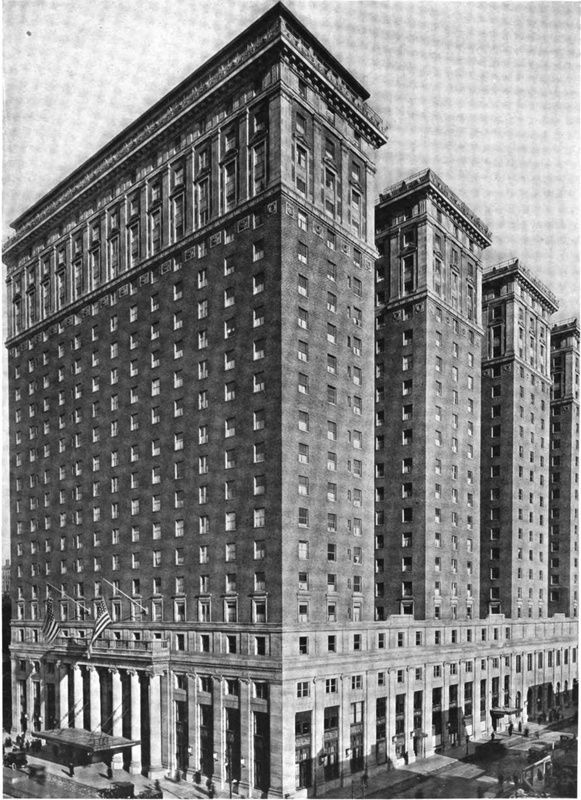
The decision to tear down the Hotel Pennsylvania has been spurred by plans for the Empire Station Complex, “an integrated public transportation complex to revitalize New York’s Pennsylvania Station (Penn Station) area and give New York City the world-class intercity transportation hub it deserves.” In creating this transportation hub, the plan calls for the demolition of many buildings surrounding the current Penn Station. These include 10 buildings that could be eligible for New York City landmark designation and 38 buildings that could be eligible for State and/or National Register status, a category the Hotel Pennsylvania falls into.
While the hotel has been denied New York City Landmark status in the past, it is eligible to join the State and National Register. The environmental impact statement for the Empire Station Complex states that the building is would have “Significant Adverse Impact from Development on Site 7” and would be demolished as part of the plan, but also calls it historically “significant under Criterion A for its association with commercial development around Penn Station. In addition, the building also meets Criterion C for its architectural design.”
In place of the Hotel Pennsylvania, Vornado proposes to erect a super-tall structure designed by Foster + Partner’s, the firm that designed Hearst Magazine Tower and 425 Park Avenue. The tower on Seventh Avenue would be just one of ten new buildings proposed in the Empire Station Complex Plan. It would rise 1,270-feet, coming in just under the tip of the Empire State Building.
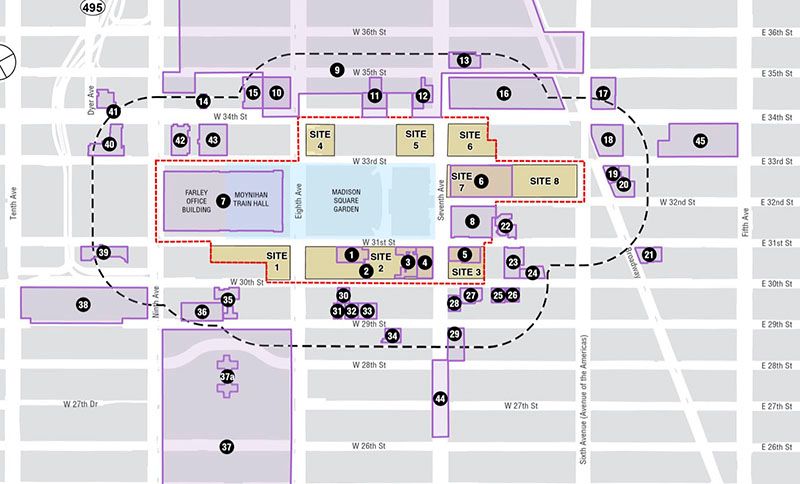
The most recent news concerning the fate of Hotel Pennsylvania and the rest of the endangered buildings that fall within the footprint of the Empire State Complex comes out of recent state budget hearings. Governor Cuomo requested $1.3 billion that would be used to purchase the properties that currently stand in the way of new development. Legislatures however decided that the allotted funds could only be used specifically for transportation improvements. The celebration of local activism groups was short lived, with yesterday The New York Times reporting that the state can still seek other avenues of funding to acquire the properties and can also resort to eminent domain. The co-author of the Times article, Luis Ferré-Sadurni, tweeted that “Cuomo officials say they can still use it for original purposes to clear land for the Empire Station Complex.”
This is not the first time the Hotel Pennsylvania has been at risk of demolition. In 2007, Merill Lynch was planning to move its headquarters to a new super-tall structure at the site of the Hotel Pennsylvania. The New York Times reported that the company was even in talks with potential developers such as Tishman Speyer Properties, among others. Attempts to have the building designated New York City landmark fell short multiple times, but by 2013, landmark status wasn’t necessary. As Untapped New York reported, Vornado decided to “save” the hotel rather than tear it down. According to the Wall Street Journal, Steve Roth told investors that Vornado planned to “invest in [the hotel] aggressively” and make it “really profitable.” Merill Lynch ultimately moved into One Bryant Park, after merging with Bank of America.
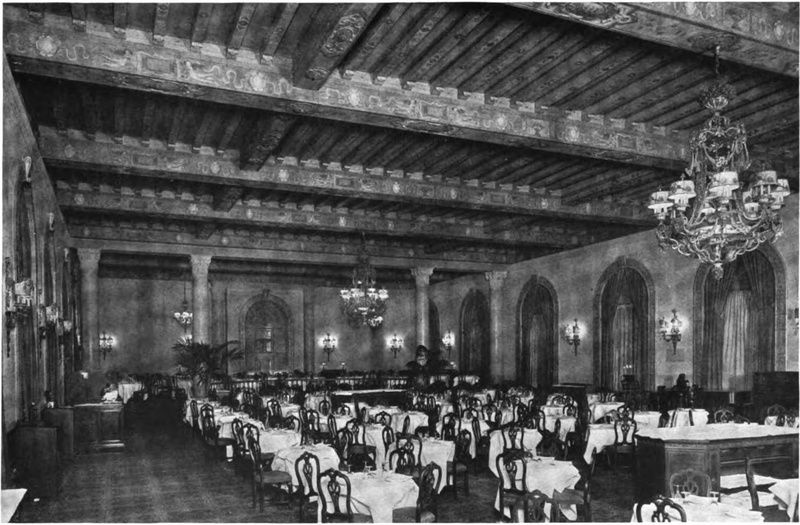
The Hotel Pennsylvania was designed by the illustrious architecture firm of McKim, Mead, and White, the same architects who designed the original Penn Station and the threatened Penn Station Powerhouse. Facing the transit hub on Seventh Avenue, the hotel was once the largest in the world. At the famous Cafe Rouge inside, a guest might have seen a performance by Duke Ellington or The Glenn Miller Orchestra. The Orchestra’s song, “Pennsylvania 6-5000,” is named after the hotel’s phone number, allegedly the oldest continuing phone number in New York City. The Hotel Pennsylvania also claims to be the first to have offered guests the convenience of valet doors, small doors next to the room door that leads to a closet-like space where guests could leave items to be picked up by the hotel for services such as laundry.
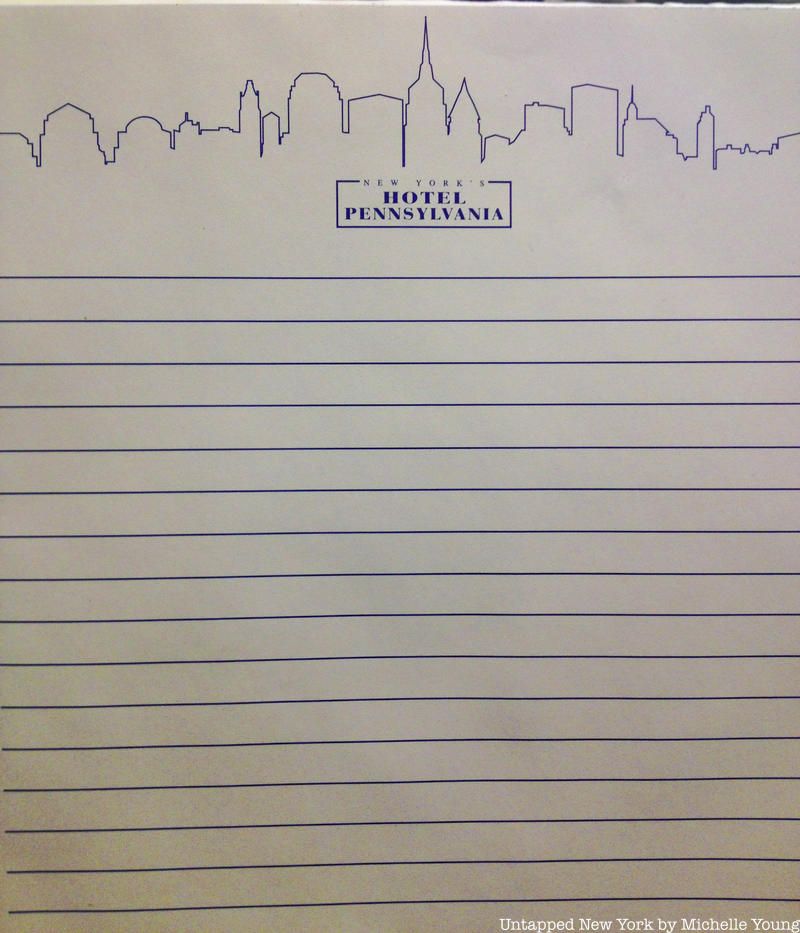
Just over a century after it originally opened, the hotel closed in response to the pandemic and remains closed today. As the building sits stoically awaiting its fate, preservationists have stepped up with calls to save the building once again. The online discourse surrounding Empire Station Complex has become increasingly binary — with pro-development folks pigeonholing preservationists as effectively dooming the future of New York City, and vice versa. But as Justin Rivers from Untapped New York wrote about our efforts to save the original Penn Station powerhouse, a balance can be still be made here: “Moynihan Train Hall is proof that the past and present can co-exist not only for the sake of utility but also for the sake of beauty. These structures should be preserved and thoughtfully integrated into the Empire Station Complex.:
On Wednesday, May 12th, one of the community coalitions leading the effort to save the building will host a Big Band rally where a band will play Glen Miller’s “Pennsylvania 6-5000” and local preservation leaders will speak about the importance of the building. The rally, at the Hotel Pennsylvania, will start at 11:00 am.
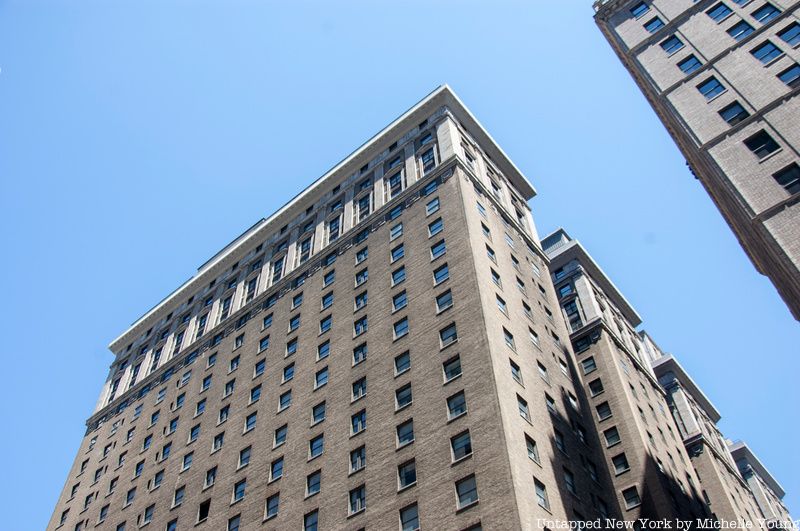
This afternoon, you can learn more about the Hotel Pennsylvania and more of the endangered buildings on 31st Street at Untapped New York’s free, virtual Jane’s Walk tour. Janes Walk NYC is an annual “volunteer-led celebration of urban life, inspired by Jane Jacobs” and hosted by the Municipal Arts Society. On our walk, you will be introduced to the landmark eligible buildings at risk of demolition due to the proposed Empire Station Complex Plan. In the Jane Jacobs’ spirit, this tour will include actions step participants can take to help preserve these buildings before they are destroyed and replaced with super-tall towers no one needs or wants.
Endangered Buildings of 31st Street
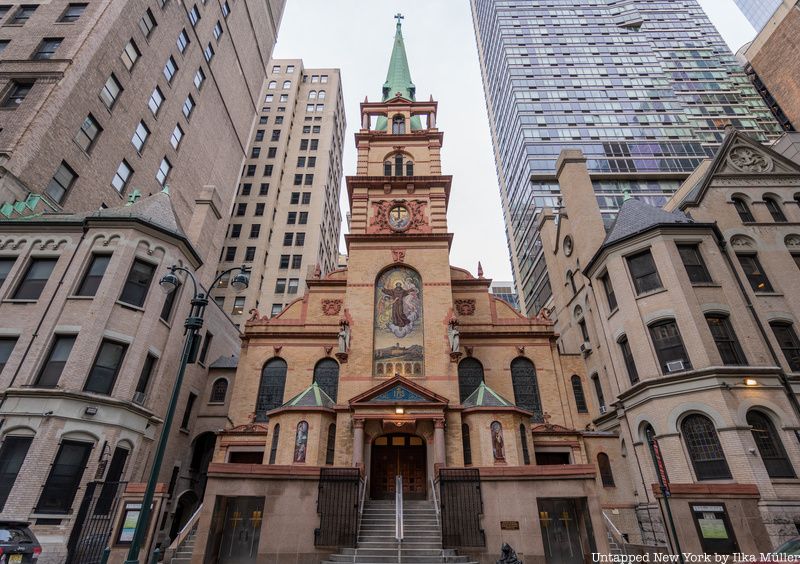
One of the buildings you will see on the tour is the Penn Station Powerhouse, the largest remnant of the original Penn Station. Untapped New York has partnered with the Historic Districts Council, and the City Club of New York and additional founding partners to create the Coalition to Save the Penn Station Powerhouse. You can aid our efforts by signing the Coalition’s petition. The Coalition is working to submit a formal Request for Evaluation to the Landmarks Preservation Commission to kickstart the landmarking process. Also join our tour this weekend of the Remnants of Penn Station!
Next, check out At Risk: The Landmark Eligible Buildings Around Penn Station
Subscribe to our newsletter